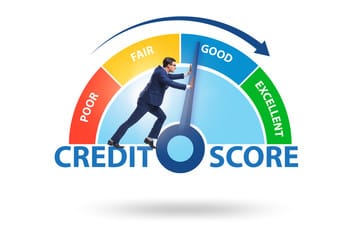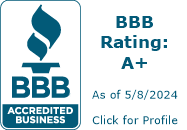Business Credit Rating
Business Credit Ratings: Why It Matters for Small Business Owners
Quick Overview:
Your business credit score shows lenders how risky it is to lend to you.
It’s based on factors like payment history, public records, and how much credit you use.
Your score can affect your loan approvals, credit limits, and interest rates.
Monitoring and improving your score is key to keeping your business financially strong.

What Is Business Credit?
Whenever your business applies for financing—whether that’s a credit card, a line of credit, a loan, or even a mortgage—lenders look at your business credit profile. This is separate from your personal credit, though both may be reviewed if you’re a small business owner.
Your business credit score tells lenders how likely your business is to pay bills on time—or whether you might be a risk for late payments or defaults. The stronger your score, the better your chances of approval and the lower your interest rates will be.
What Makes Up Your Business Credit Score?
Your business credit profile is built from different types of information, including:
Payment history: Do you pay your suppliers, credit cards, utilities, and loans on time?
Public records: Licenses, property ownership, tax filings, or negative marks like liens, lawsuits, judgments, and bankruptcies.
Debt obligations: How much credit your business already has and how it’s being managed.
This information is collected by credit bureaus and run through formulas to produce your score. Unlike personal credit (which always uses a 300–850 scale), business scores vary. For example, one bureau might use a 1–100 scale, while another uses something different.
Who Tracks Your Business Credit?
The major business credit reporting agencies are:
Dun & Bradstreet
Experian Business
Equifax Business
Business Credit USA
Each bureau collects slightly different information and uses its own scoring system. That’s why your business credit score may look different depending on where you check.
Important: Not all vendors and lenders report to the bureaus. That means your good payment history might not always show up. Always check your reports and correct any errors, because mistakes do happen.
Why Business Credit Matters
Your business credit profile affects more than just bank loans. It can influence:
Approval odds for loans, credit lines, and credit cards
Interest rates you’re offered
Insurance premiums
Trade terms with suppliers (example: 30-day or 60-day payment terms)
Lease approvals for office or retail space
In short: a weak profile costs your business money, while a strong one opens doors.
How to Build and Improve Your Business Credit
If your business is new or your credit score needs work, here are steps you can take:
Set up your business properly. Form an LLC, partnership, or corporation and get a federal Tax ID Number (TIN).
Keep business and personal finances separate. Use a business bank account and file a separate business tax return.
Pay bills on time—always. On-time payments are the single biggest factor in a healthy score.
Work with vendors who report to credit bureaus. Not all do—so ask.
Check your reports regularly. Look for errors and correct them quickly.
Keep debt under control. Don’t overextend your business with too many loans or high credit usage.
Bottom Line
A strong business credit profile makes it easier to get loans, credit lines, and better terms for your business. By setting up your business correctly, paying on time, and keeping an eye on your reports, you can build a solid credit history that lenders trust.
Good business credit isn’t built overnight—but with consistent effort, it will make financing your business much easier in the long run.
Disclaimer: * The 0% is for a limited period of time, your initial time period and final rate will be based on your qualifications and program offerings at time of application and approval. All programs are subject to change without notice. Submitting your business funding application will not impact your personal credit score. However, if you choose to proceed with an offer, certain funding options may require a hard credit inquiry. ChicagoBusinessLoans.com is not a direct lender and does not make credit decisions. Approvals are not guaranteed and are subject to bank/issuer decision. We do not provide legal, tax, or financial advice. Please consult a licensed professional for personalized guidance.
Leave your email and we will contact you in 24 hours

